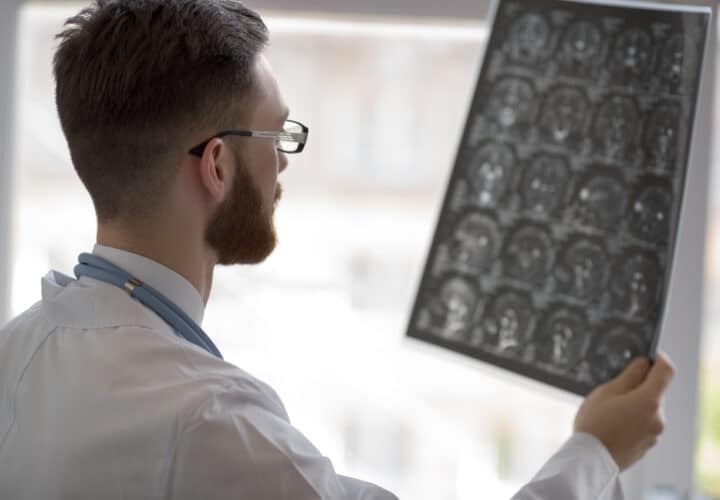Bill Gates, Jeff Bezos and other billionaires are heading a $100 million research effort to develop better Alzheimer’s biomarkers.
Even though Alzheimer’s may start 20 years before symptoms first appear, there are no non-invasive diagnostics to detect it. An initiative called the Diagnostics Accelerator has raised $50M to fund dozens of different approaches to making the diagnosis.
Last January, Bill Gates revealed that his 92-year old father was dealing with Alzheimer’s. At the time, he found the diagnostic options uncomfortable and invasive. Since scientists believe that Alzheimer’s may begin up to 20 years before symptoms first appear, his father may have first developed signs of the disease decades earlier. Though early detection and treatment is key for better outcomes, there aren’t any reliable tools that can efficiently diagnose the disease in preliminary stages. So, Gates did what any well-intentioned billionaire might do: he launched an effort to develop better Alzheimer’s diagnostics, in hopes of sparing other families the same fate.
Gates’s initiative, called the Diagnostics Accelerator, was formed as a sub-effort of the Alzheimer’s Drug Discovery Foundation (an organization founded in 1998 by the co-chairmen of Estée Lauder). After Gates went public with the effort, other billionaires Jeff Bezos and Bezos’s then-wife Mackenzie Scott chipped in, bringing the pot up to $50 million.
As of July 26, 2022, the Alzheimer’s Drug Discovery Foundation has raised another $50 million. Among the new funders are drugmakers Biogen and Eli Lilly, and the NFL Players Association. (They have a vested interest because such a high percentage of football players receive traumatic brain injuries over the course of their athletic careers, making them more likely to develop memory loss and degenerative brain conditions including Alzheimer’s.)
According to Niranjan Bose, Gates Ventures’ managing director of health and life sciences, the research funded by the Diagnostics Accelerator program has already led to “dozens of new biomarkers in the pipeline.”
One of the outcomes so far has been the development of new blood tests and eye scans that can test for Alzheimer’s. “The day will soon come when there will be blood tests, eye scans and smartphone apps to diagnose Alzheimer’s, just as simple tests can diagnose hypertension, diabetes or high cholesterol,” said Alzheimer’s Drug Discovery Foundation Co-founder and Chief Science Officer Dr. Howard Fillit. “Our aim is to bring more diagnostic tools to patients and physicians within the next five years.”
How the diagnostics accelerator is leaving a mark
Two of the new blood-based diagnostic tools to come out of the accelerator are spearheaded by professors at the University of Gothenburg. One test is designed to detect two different kinds of beta-amyloid protein — a key Alzheimer’s biomarker — in the blood. Another detects tau — another tell-tale sign of Alzheimer’s pathology in the brain. These are still being tested in trials and are not available on the market yet.
Several other projects financed through the accelerator focused on retinal diagnostics. In 2018, a physician at the University of Washington named Cecilia Lee published a study that found eye conditions like glaucoma and macular degeneration doubled the risk of developing Alzheimer’s. Her research group and several biotechnology startups are using the funding to create technology that can spot the signs of Alzheimer’s and even amyloid plaques through retinal scans.
Yet another approach to early diagnosis is completely digital. Multiple scientists received funding to see whether computerized tests could provide early signs of cognitive decline. One company called Cogstate uses a test disguised as mobile games.
Better, faster, more affordable diagnostics
By finding and quantifying new biomarkers through divergent approaches, the accelerator hopes to change the Alzheimer’s landscape for the better and open up the possibility for testing treatments in pre-symptomatic patients. The goal of these new approaches is to improve on brain scans and spinal taps in several areas. The new approaches will ideally be faster, more accurate, less physically invasive, and require less specialized skills to administer. Additionally, they will not depend on proximity to a treatment center and will be ideally be more affordable than brain scans and spinal taps.




